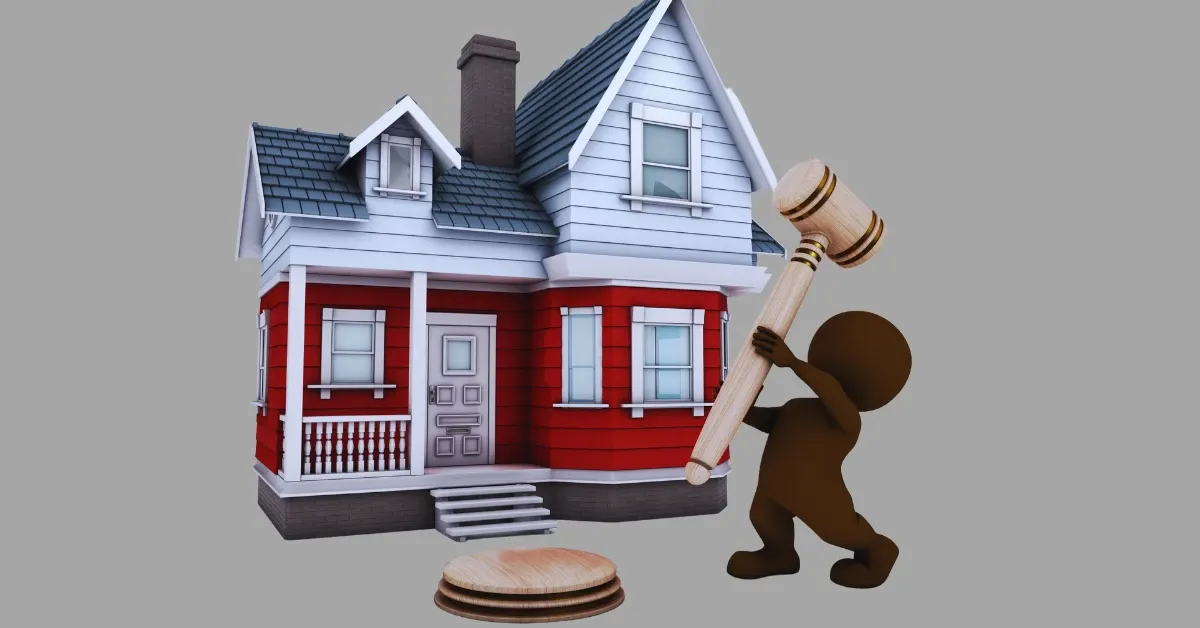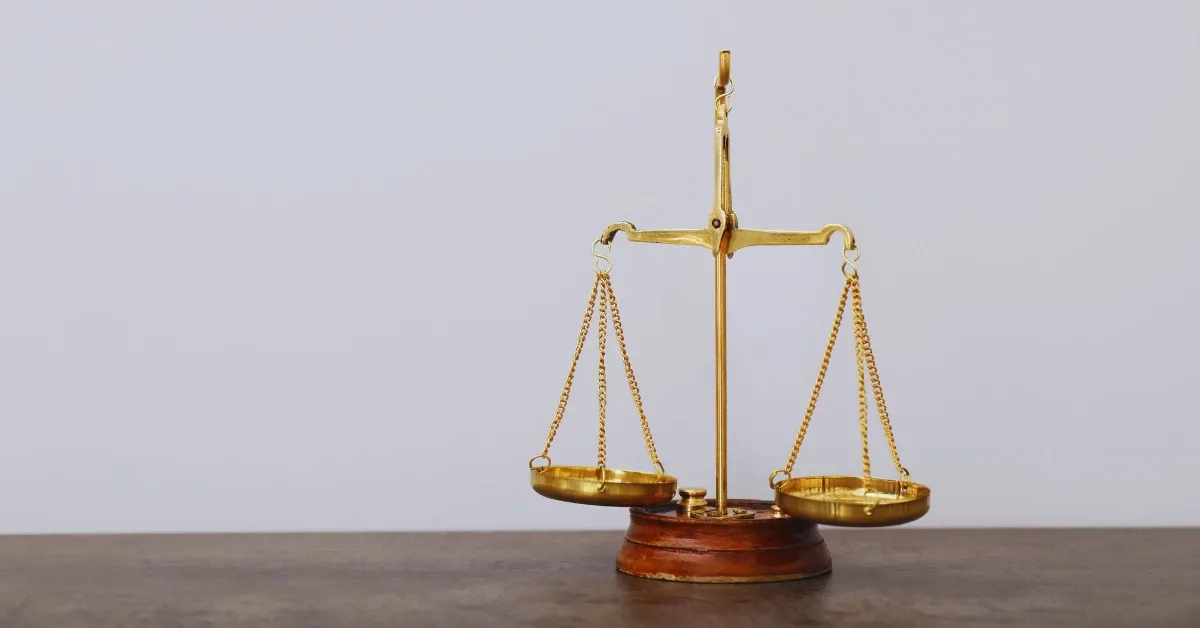A landlord judgment is a court order that gives a landlord the legal right to collect unpaid rent or damages from a tenant. Essentially, it is a ruling in favour of the landlord.
If you fail to pay rent or cause damages to the rental property, your landlord may take legal action against you.
If the landlord wins the case, a judgment can be issued against you, allowing them to collect the owed amount through various means, such as wage garnishment or seizing property.
It is important to try to resolve any issues with your landlord before it reaches the point of legal action. As a landlord, it is important to understand the legal process and to take action in a timely manner if necessary.

Defining Landlord Judgment: Using Legal Terminology

Brief Explanation Of Landlord-Tenant Law
Before defining landlord judgment, it’s important to have a basic understanding of landlord-tenant law.
This set of laws governs the legal rights and obligations of both landlords and tenants in a rental agreement.
It outlines the expectations for the landlord and tenant on matters such as rent payment, security deposits, maintenance and repairs, and eviction.
These laws vary depending on the state and local jurisdiction, so it’s important to consult the specific laws in your area.
Definition Of Landlord’S Judgment And Its Context In Legal Proceedings
Landlord’s judgment is a legal term that refers to a decision made by a judge in a landlord-tenant dispute.
The judgment outlines the court’s decision on the issues presented in the case, such as back rent owed, damages to the rental property, or eviction.
A landlord may seek judgment against the tenant if they fail to pay rent or comply with other terms of the lease.
The judgment is then enforceable through various means, including wage garnishment or seizure of assets.
The Role Of Landlord Judgment In Eviction Cases
One of the most common contexts in which landlord judgment is used is in eviction cases.
When a landlord seeks to evict a tenant for breaching the lease agreement, they must go through a legal process that includes a court hearing.
The judge will consider evidence from both the landlord and tenant before making a decision.
If the judge rules in favour of the landlord, they will issue a judgment outlining the terms of eviction, such as the date by which the tenant must vacate the premises.
If the tenant fails to comply with the order, the landlord can then obtain a writ of possession, which allows law enforcement to remove the tenant and their belongings from the property.
As with any legal proceeding, it’s important for both landlords and tenants to understand their rights and obligations under the law.
Seeking the advice of a qualified attorney can help ensure that your interests are properly represented in court.
Types Of Landlord Judgments: Key Differences And Implications

The Difference Between Money Judgments And Possession Judgments
Landlord judgments come in two types: money judgments and possession judgments. Both have very different implications and procedures for obtaining them.
Money Judgments
- A money judgment is a court order requiring the tenant to pay the landlord a specific sum of money within a specified timeframe.
- These judgments are typically awarded in situations where the tenant owes rent or has caused damage to the rental property.
- The process for obtaining a money judgment usually begins with a complaint and summons being filed with the court.
- If the tenant fails to respond, a default judgment may be entered against them.
- If the tenant disputes the claim or the debt owed, the case may proceed to trial for a decision to be made.
Possession Judgments
- A possession judgment, on the other hand, is a court order requiring the tenant to vacate the property.
- These judgments are typically awarded in cases of eviction where the landlord has a legal right to possess the property again.
- The process for obtaining a possession judgment varies by state but usually involves filing a complaint and summons with the court.
- If the tenant fails to respond or challenges the claim, a hearing may be scheduled to determine whether the landlord has the legal right to possession.
Understanding The Process For Obtaining Each Type Of Judgment
- To obtain a money judgment, the landlord must file a complaint with the court outlining the amount owed and the reasons why.
- The tenant will then be served with a summons and have the opportunity to respond.
- If the tenant fails to respond, a default judgment may be entered against them.
- If the tenant disputes the claim, a hearing or a trial may be scheduled to determine the outcome.
- To obtain a possession judgment, the landlord must typically provide notice to the tenant of their intent to take legal action.
- If the tenant fails to vacate the property, the landlord will then need to file a complaint with the court.
- The tenant will be served with a summons and have the opportunity to respond and challenge the claim.
- If the claim is upheld, a possession judgment will be awarded to the landlord giving them the legal right to retake the property.
Examining How Each Type Of Judgment Impacts The Landlord-Tenant Relationship
- A money judgment may strain the landlord-tenant relationship, particularly if the tenant feels they have been treated unfairly or if there is a dispute over the amount owed.
- The landlord may also be required to take additional legal action to enforce the judgment and collect the debt owed.
- In some cases, a money judgment may lead to the eviction of the tenant if they are unable to pay the debt owed.
- A possession judgment can have a significant impact on the landlord-tenant relationship, as it means the tenant will be forced to vacate the property, potentially losing their home and possessions.
- It can also be a significant financial and legal burden on the landlord, who may need to store or dispose of the tenant’s belongings, make repairs to the property, and incur court costs and legal fees.
- In some cases, a possession judgment may result in the tenant being unable to rent future properties or obtain credit due to the negative impact on their credit score.
Factors Affecting Landlord Judgments
A landlord may decide to pursue a judgment against a tenant for various reasons.
These reasons may include non-payment of rent or lease violations, such as damaging property or disturbing other tenants.
Landlords make these decisions based on several factors, including evidence provided by tenants or landlords, tenant behaviour, and other factors.
How Evidence Provided By Tenants Or Landlords May Affect Landlord Judgments
Evidence plays a crucial role in helping landlords determine whether or not to pursue judgments.
Both tenants and landlords can provide evidence to support their claims in court. Here are some ways this evidence may affect landlord judgments:
- For landlords, evidence such as photographs, videos, and witness statements can help prove a tenant’s fault in a lease violation or non-payment of rent.
- Tenants may also provide evidence to support their claims, such as emails or texts between them and the landlord regarding repairs or maintenance issues.
Factors That Landlords May Consider In Determining Whether To Pursue A Judgment
Landlords have several factors to consider before pursuing a judgment against a tenant. Here are some of the factors that landlords may consider:
- The costs involved in pursuing a judgment, such as court fees, attorney fees, and time spent on legal proceedings.
- The likelihood of success in court is based on the strength of the evidence and the tenant’s response.
- The impact of pursuing a judgment on their relationship with the tenant and the potential for further problems in the future.
The Potential Impact Of Tenant Behavior On Landlord Judgments
Tenant behaviour can also influence landlord judgments. A landlord may view a tenant’s behaviour as a red flag and may be more likely to pursue legal action based on the tenant’s conduct.
Here are some examples of tenant behaviour that may impact landlord judgments:
- Consistent late or non-payment of rent.
- Failure to comply with lease terms, such as unauthorized pets or guests.
- Causing damage to the property or other tenants’ units.
Legal Procedures And Requirements For Filing For Landlord Judgment
When a tenant owes rent or damages to a landlord, the landlord can take legal action to obtain a judgment.
Obtaining a landlord judgment involves following legal procedures and meeting specific requirements. Here are the key points to understand when filing for landlord judgment:
- A landlord can only file for judgment after providing notice to the tenant. The notice must comply with state laws and include information about the amount owed.
- The landlord must file a lawsuit in the appropriate court and pay the filing fees. The court will then issue a summons to the tenant, notifying them of the legal action.
- The tenant has the right to respond to the lawsuit and present evidence in court. The landlord must also present evidence to prove their case.
- If the court rules in favour of the landlord, a judgment will be issued. This judgment will outline the amount of money the tenant owes and may include additional fees and interest.
The Steps Involved In The Process
Filing for landlord judgment can be a complicated process that involves several steps. Here’s a breakdown of what to expect:
- Provide a written notice to the tenant that complies with state laws. The notice should describe the amount of rent or damages owed and provide a deadline for payment.
- If the tenant does not pay or move out by the deadline, the landlord must file a lawsuit in the appropriate court. The landlord will need to pay a fee for filing the suit.
- The court will issue a summons to the tenant, notifying them of the lawsuit and providing a deadline for responding.
- Both the landlord and tenant will have the opportunity to present evidence in court. The landlord will need to prove their case by providing documentation such as a lease agreement, receipts for payments made, and photos of damages.
- If the court rules in favour of the landlord, a judgment will be issued. The landlord can use the judgment to collect the amount owed from the tenant.
The Timeframe For Filing And Obtaining A Judgment
Obtaining a landlord judgment is not a quick process. The amount of time it takes can vary depending on the court’s schedule, the complexity of the case, and the tenant’s response.
Here’s a rough timeline to keep in mind:
- Provide written notice to the tenant: This can range from a few days to a few weeks depending on state laws.
- File the lawsuit: This can take several days to several weeks depending on court procedures.
- Court hearing: This can take several weeks or even months depending on the court’s schedule.
- Judgment: If the court rules in favour of the landlord, the judgment will be issued immediately.
Legal Challenges That May Arise When Filing For Landlord Judgment
As a landlord, you may encounter tenants who don’t pay rent or violate the terms of the lease agreement.
In such cases, you may choose to file a landlord judgment. While filing for a landlord judgment is often the right course of action, it can also lead to legal challenges.
Common Legal Challenges That Landlords May Face When Pursuing A Landlord Judgment
Counterclaims
If you file for a landlord judgment, the tenant might file a counterclaim against you, accusing you of breach of contract or another legal violation.
This will require you to respond to the tenant’s claims and could result in a prolonged legal process.
Statute of limitations
Landlords must file a landlord judgment within the time limit set by state law.
If the statute of limitations has expired, the court may dismiss the case without further consideration.
Technical errors
Filing the landlord’s judgment incorrectly or inaccurately can lead to legal challenges, delays, or even case dismissal.
Possible Defenses That Tenants May Use To Challenge A Landlord Judgment
Failure to provide proper notice
If you did not give the tenant proper notice before filing the landlord judgment, the tenant may use this as a defence.
Facts disputed
If the tenant disputes the facts provided in the eviction notice, they may use it to defend themselves against the landlord’s judgment.
Retaliation
The tenant may defend against the landlord judgment by stating that the landlord is seeking a judgment as retaliation for reporting housing violations to authorities.
Discussion Of How To Respond To Legal Challenges

Counterclaims
Landlords should prepare for the tenant’s counterclaims by collecting evidence and seeking legal advice to properly defend themselves.
Statute of limitations
To avoid the potential statute of limitations expiry, landlords should act promptly and carefully follow all rules and deadlines set by state law.
Technical errors
Landlords should be diligent when filing for a landlord judgment, ensuring that all documentation is accurate and filed correctly.
It is also advisable to seek legal advice to ensure that the landlord’s judgment is done professionally.
Consequences Of Landlord Judgments
How Landlord Judgments May Appear On Tenant Credit Reports And Other Financial Records
Landlord judgments can significantly impact the financial standing of a tenant. In some cases, these judgments can even appear on a tenant’s credit report.
Here are some key points to consider:
- A landlord judgment can appear on a tenant’s credit report if the landlord reports the judgment to a credit agency.
- Credit bureaus may either treat the judgment as a tradeline, similar to other credit accounts or as a public record.
- The judgment can negatively impact the tenant’s credit score, making it difficult to obtain future loans or credit cards.
Payment Options For Tenants Who Have Been Ordered To Pay Damages
When a court rules in favour of a landlord and orders a tenant to pay damages, it is imperative to understand the available payment options.
Here are some key points to remember:
- Tenants may be required to pay damages in a lump sum or in instalments.
- Interest may be charged on unpaid balances, which may increase the overall amount owed.
- Failure to pay damages could result in wage garnishment or other legal consequences.
Other Financial Implications That Can Arise From Landlord Judgments
In addition to credit score damage and payment obligations, landlord judgments can have several other financial implications. Here are some key points to keep in mind:
- The tenant may incur legal fees and court costs resulting from the judgment.
- The judgment could impact the tenant’s ability to rent future properties.
- Background checks conducted by employers, insurance companies, or landlords could reveal the judgment, adversely affecting the tenant’s opportunities.
Communication And Documentation Strategies For Landlords
Landlord judgment can be a complex and stressful topic for both landlords and tenants alike.
To avoid potential issues and legal trouble, it is crucial for landlords to have effective communication and documentation strategies in place.
As a landlord, having clear records of all tenant-landlord interactions can help protect you in case of any disputes.
Documentation Of All Tenant-Landlord Interactions
Keeping a record of all interactions with tenants is crucial for landlords.
When a landlord maintains detailed documentation, they have proof to show what agreements were made between the parties involved, communication timelines, and any obligations both parties agreed to.
Here are some key reasons why documentation is essential:
- Helps landlords to defend against any legal disagreements that might come up.
- Provides evidence and supports landlord’s claims, should any dispute arise with tenants.
- Creates a timeline of all interactions and events you had with the tenant.
Recommendations For Communicating With Tenants In A Positive And Effective Manner
When it comes to communicating with tenants, there are several recommendations that landlords should consider to maintain healthy relationships and avoid any misunderstandings:
- Always communicate in a friendly and respectful tone. In the case of any conflicts, never lose your cool.
- Respond promptly and professionally to any queries or concerns raised by the tenant.
- Try to understand the tenant’s viewpoint first before sharing yours.
- Build a rapport with your tenants by checking in periodically, being available, and going beyond the basics of landlord-tenant interaction.
The Impact Of Communication And Documentation On Landlord Judgments
Effective communication and accurate documentation are vital in any landlord-judgment cases.
Not only is good documentation essential, but good communication can help avoid misunderstandings and disagreements altogether.
This is an area where landlords need to be diligent in providing a clear understanding of the rental agreement.
Here are some notable points to consider:
- Maintaining accurate records of your tenant’s actions, including any rent payment, repairs, maintenance, or communications—can help you present your case clearly in front of any judges or authorities if needed.
- Keeping a clear track of all communication and events can help you better fight disputes and claims should the situation arise.
- Communicating with your tenant professionally can create a positive influence on any legal proceedings should that situation arise. Good professional relationships allow tenants and landlords to work together toward a resolution when conflict arises.
Prevention Strategies: Tips For Landlords To Avoid Court Proceedings
As a landlord, it is important to take preventive measures to avoid legal disputes with tenants. Here are some recommendations to help you avoid potential disputes:
- Conduct thorough background checks before approving a tenant to avoid tenants with a history of legal issues that could lead to problems.
- Maintain clear communication with your tenants and address any concerns or complaints they have immediately to prevent small issues from turning into major disputes.
- Regularly inspect the rental property to identify any potential safety hazards and address them promptly.
Recommendations For Creating Clear Rental Agreements And Policies That Minimize Disputes
Creating clearly written and fair rental agreements is an essential component of minimizing potential disputes with tenants.
Here are some tips for creating a rental agreement that benefits both landlords and tenants:
- Clearly state your expectations for tenant behaviour in the rental agreement. This includes rules for guests, pets, and smoking, rent payments, and maintenance responsibilities.
- Make sure the rental agreement clearly outlines the duration of the lease and any renewal or termination clauses.
- Provide tenants with a breakdown of all the costs associated with the rental property, including any deposits, utilities, and other expenses.
Alternative Dispute Resolution Methods And Their Benefits
When disputes arise between landlords and tenants, it’s important to consider alternative dispute resolution methods before resorting to court proceedings.
Here are some benefits of alternative dispute resolution methods:
- Can be quicker and less expensive than traditional court proceedings.
- Can help to maintain a positive relationship between landlords and tenants.
- Allows both parties to voice their concerns and come to an agreement that works for everyone involved.
Frequently Asked Questions On What Does Landlord Judgment Mean
What Is Landlord Judgment And How Does It Work?
Landlord judgment is a court order for the tenant to pay rent arrears or vacate the property. If the tenant fails to comply, the landlord may take legal action to evict them.
Can Landlords Garnish Wages For Unpaid Rent?
Yes, if the landlord gets a judgment in their favour, they can garnish the tenant’s wages until the debt is paid off. However, the landlord must follow the legal procedures and obtain a court judgment.
Can A Landlord Sue A Tenant For Moving Out Early?
It depends on the lease agreement. If the tenant signed a lease agreement with a specified move-out date, the tenant may be liable for rent for the remainder of the lease term if they move out early. The landlord can sue the tenant to collect the unpaid rent.
What Is The Process For A Landlord To Get A Judgment?
The landlord must file a lawsuit against the tenant in court and prove that the tenant owes rent arrears. If the judge rules in the landlord’s favour, they will issue a judgment. The landlord can then take action to collect the debt, such as wage garnishment or property liens.
Conclusion
Finding a landlord judgment against your name can certainly feel like a hurdle. But remember, it’s not the end of your leasing journey.
With the right knowledge, action, and responsible behaviour, you can navigate this path and prove to future landlords that you’re a reliable tenant.
Reference
https://www.lawhelp.org/dc/resource/landlords-judgments-writs-and-the-eviction-pr
